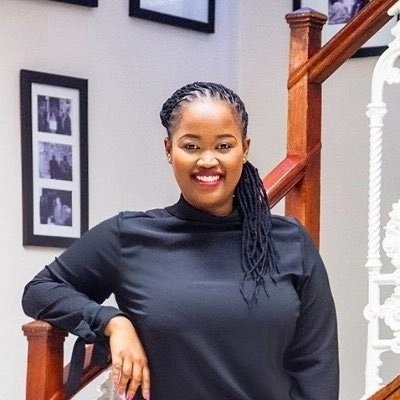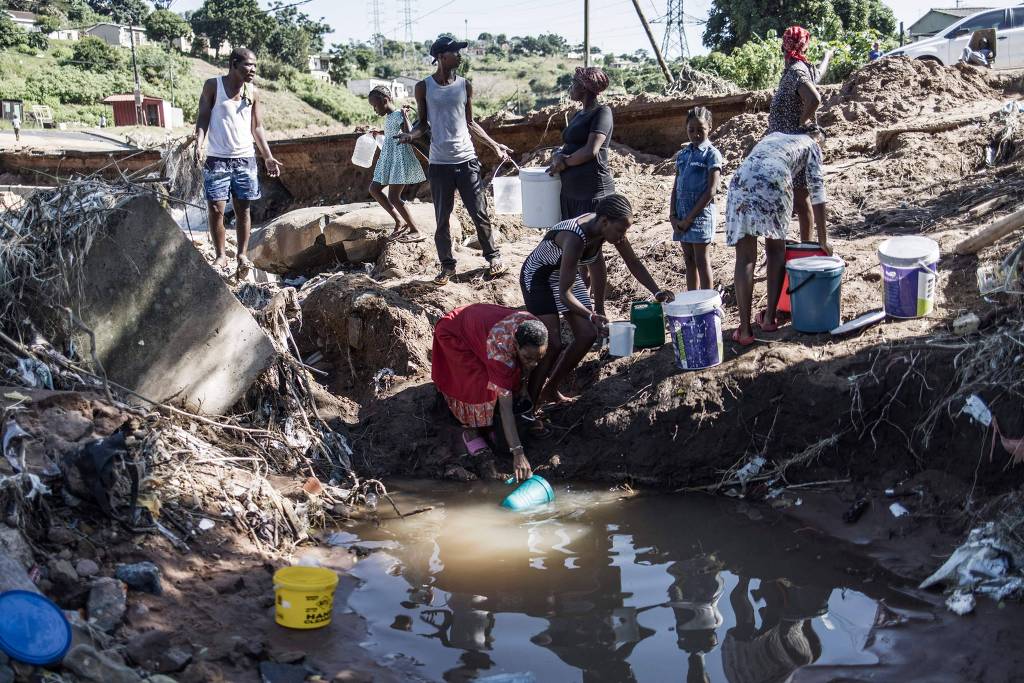Iyaleta Global South Dialogues: South African Gugu Nonjinge talks on climate action and the importance of COP27 in Africa
The African countries and Brazil are territories of the Global South in which the impacts and effects of climate change converge in the expansion of inequalities for the region’s populations. The absence of public policies in infrastructure in the face of the humanitarian climate crisis puts the lives of Black populations and Indigenous peoples in high vulnerability.

Foto divulgação
Beyond the recognition of the human crisis in the context of climate change, the call for action “↓1.5°C and Inequalities Zer0“, an initiative of the Iyaleta Research Association, reinforces the urgency of eliminating racial, ethnic, gender, generational, and social inequalities in the territories and cities of the Global South. This humanitarian care for Planet 2050 is the duty, primarily of the Global North, with its commitments, mechanisms, and determinations.
Comprehending communication as necessary to understand and recognize the unequal conditions we humanly live in the global space, Iyaleta Research Association debuts the series “Iyaleta Global South Dialogues,” which proposes the expansion of this communication through interviews with African climate activists and researchers. For the first edition of the series, the guest is Gugu Nonjinge, a legal and communication professional, born and raised in the Eastern Cape province of South Africa.
The climate activist’s work as Senior Director of Advocacy at the Center for the Study of Violence and Reconciliation (CSVR) is aimed at finding links between climate change and peacebuilding and its potential impact on violent conflicts that are currently underestimated. For her, education on human rights is linked to education on climate change and highlights the importance of building public knowledge around the subject. Check out the full interview below.
IYALETA: Tell us a little about the organization you operate, your role as an activist on climate and environmental issues, and the work you have developed over the years.
What led you to act in the fight against climate change?
I currently work for CSVR, whose mission is to promote sustainable peace at community, national, regional and global levels by understanding, preventing and addressing the effects of violence and inequality. For three decades CSVR has worked to understand violence, heal its effects, reconcile communities and build sustainable peace in South Africa, the continent and elsewhere in the world. My interest as advocacy officer has been finding linkages between climate change and peacebuilding and its potential impact on violent conflict that is currently underappreciated. I believe that institutions that are mandated to ensure that the human rights of peoples are promoted, protected and fulfilled, need to recognise that climate change is an interwoven issue. They must educate people by linking peace education and human rights education to climate change education.
IYALETA: What led you to act in the fight against climate change? Did you work with any organization?
Growing up in the rural Eastern Cape where farming is a big deal, I always had interest in learning about the causes of drought and how it affected our crops at home. In 2018 I started working with Afrobarometer, a pan-African, non-partisan research network that conducts public attitude surveys on democracy, governance, economic conditions, and related issues in African countries.
Findings from Afrobarometer’s round 7 of public-opinion surveys across Africa showed a keen awareness of climate change in some countries but only about three in 10 (28%) are fully “climate change literate”. This highlighted the need to build public knowledge around the issue.
At Afrobrometer I also wrote a couple of papers analysing climate change date. Access some here:
IYALETA: What are the impacts of climate change on South African territories today?
South Africa is a water-scarce country as a result, parts of the country increasingly experience serious droughts, while at the same time changes in rainfall patterns result in severe storms, landslides and flash flooding in other parts of the country. In the dry areas, the drought results in significant reductions of dam levels which cause chronic water shortages in urban areas.
The shortage of water also negatively affects crop yields and livestock, which in turn negatively impacts on food security, especially among the urban poor who are unable to adjust to the resultant increases in food prices.
IYALETA:Have you been participating in COP26 in Glasgow in Scotland in the past year? If yes, what is your evaluation as a person born and living in Africa? If not, what is your evaluation of COP26 and how it reaches governments in Africa?
No, I have not been participating in COP26 in Glasgow in Scotland in the past year
Despite the acknowledgment of loss, costs, and damages caused by climate change at COP26, developed countries still refuse to officially acknowledge historical responsibility for loss and damage costs. For countries that are witnessing the devastating impacts from sea level rises and cannot afford sea-level rise adaption strategies, the failure to secure a dedicated damage fund is equivalent to no action.
The Summit also failed to address inequalities in how international climate finance is dispersed between developing and least developed nations, and the form which this financing should take.
On the just transition, even with commitments made COP26 didn’t acknowledge how just transitions won’t be as easy for developing countries. Just transitions ought to be more than an environmental imperative, it’s a matter of social and economic justice.

Fonte: Marco Longari – 15.abr.22/AFP
IYALETA: You wrote a text recently talking about the menstrual dignity of girls and adolescents. How can we connect this issue with the lack of access to essential sanitation services (toilets, water, etc.) with environmental and climate change issues?
The gender dimension of climate change is gaining a greater profile in the global debate. Yet the double jeopardy brought by gender and age remains largely ignored.
IYALETA: What are your prospects for the next COP27 (2022) in Egypt?
The year 2022 is a significant one for climate action in Africa, as world will be gathering in Cairo, Egypt, for the 27th UN Climate Change Conference (COP27). Leading up to this significant conference, our activism and advocacy must stress the importance of rights-based, participatory climate action, which leads to more coherent, sustainable and effective outcomes. The focus in 2022 must be on recovery efforts that strengthen resilience and adaptation.
Interview conducted by Andrêa Ferreira, Emanuelle Góes, Diosmar Filho and Juliana Dias
Edit: Juliana Dias